The Slow Painful Death of Fossil Fuel
Quote from Steve on September 8, 2020, 1:43 pm
An article on this site "Freeland, Carney May Be Canada’s Last, Best Chance for a Green Recovery" asks the question for Finance Minister Chrystia Freeland as she settles into her new cabinet portfolio is whether that statement still rings true in the context of a global health emergency, an accelerating climate crisis, a mounting wave of fossil fuel divestment and stranded assets, and the meteoric rise of clean energy alternatives.
Milestones reached by other countries leave Canada as one of the last Western democracies with no coherent plan to cut ties with the industries that brought us a mounting global climate emergency.
This isn't going to be a smooth transition by any means. I'm afraid were going to have to pry those oil barrels from Trudeau's desperate grip. It's obvious they don't have something to replace these products with in foreign markets. It's going to leave a large hole in our GDP. It doesn't have to be this way. Canada's governments have failed us from their lack of planning. The UN, WHO and several think tanks have laid out possible scenarios that they have successfully ignored.
Meanwhile, the rest of the world is moving on. The love Canada feels for fossil fuels isn't shared by other countries and its taking it's toll on them. They have to switch gears or die — maybe a little bit of both. So this topic is for the discussion about the slow painful death of fossil fuels.
First up is Exxon Mobil Corp. An article on Reuters website says they're facing a shortfall of about $48 billion through 2021, according to a Reuters tally and Wall Street estimates, a situation that will require the top U.S. oil company to make deep cuts to its staff and projects. They have had a number of set-backs lately. Enough so, that Moody's has downgraded their credit. Ya' can't tell me that didn't hurt.
Update November 1, 2020
(Reuters) - Exxon Mobil Corp XOM.N said on Thursday it could cut its global workforce by about 15%, including deep white-collar staff reductions in the United States, as the COVID-19 pandemic batters energy demand and prices.
An estimated 14,000 employees globally, or 15%, could lose jobs, including contractors, spokesman Casey Norton said. The figure will include loses from restructurings, retirements and performance-based exits. Exxon had about 88,300 workers, including 13,300 contractors, at the end of last year.
Exxon Plans To Increase Climate Pollution
ExxonMobil plans to increase its annual carbon-dioxide pollution by more than 20 million tons per year over the next five years, Bloomberg reports. The increases, which come from the company’s own analysis of its direct emissions, are equivalent to 17% of its current carbon pollution — about the yearly emissions of the country of Greece — but account for only about one-fifth of the total greenhouse gas pollution caused by burning Exxon’s fossil fuel products. Unlike many European oil majors, Exxon has refused to make efforts to curb its greenhouse gas pollution. The Bloomberg reporting comes at a potentially critical time for Exxon. Earlier this year, it was removed from the Dow Jones Industrial Average and is currently facing lawsuits from about a dozen jurisdictions alleging it knew, withheld, and denied important information about the impact of fossil fuel consumption on climate change. (Bloomberg $, E&E $)
______________________________________________
Update Nov. 4, 2020
Colossal fossil ExxonMobil announced last week that it is laying off 14,000 people, or about 15% of its global work force, as the COVID-19 pandemic continues laying waste to global fossil fuel demand and driving down oil prices.
The cuts will include “deep white collar staff reductions” in Exxon’s operations in the United States, Reuters reports. “The figure will include losses from restructurings, retirements, and performance-based exits” for both staff and contract employees.
______________________________________________
Exxon Mobil cuts billions in capital spending as oil and gas prices remain low.
- Nov. 30, 2020
Exxon Mobil announced on Monday that it would significantly cut spending on exploration and production over the next four years and would write off up to $20 billion of investments in natural gas.
The company struggled to adapt as oil and gas prices tumbled this spring when the coronavirus pandemic took hold. While oil prices have recovered somewhat in recent months, they remain much lower than they were at the start of the year.
The company said it was removing gas projects from its plans in Appalachia, the Rocky Mountains, Oklahoma, Texas, Louisiana, Arkansas, Canada and Argentina.
______________________________________________
Exxon discloses full scope of fuel emissions for first time
- Update Jan 6,2021
Exxon Mobil Corp. disclosed emissions data on customers’ use of its fuels and other products for the first time after coming under pressure from investors.
The oil giant’s so-called Scope 3 emissions from petroleum-product sales were equivalent to 730 million metric tons of carbon dioxide in 2019, according to the company’s Energy and Carbon Summary released Tuesday. That’s about the same as the entire country of Canada and is the highest of all major Western oil companies.
Most Western supermajors already publish the information and Exxon is doing so because “stakeholders have expressed growing interest” in it, the company said in the report. However, the data “do not provide meaningful insight into the company’s emission-reduction performance and could be misleading in some respects.”
Exxon Faces ‘Frustrated Investors’ After First-Ever Financial Loss
Update: February 3, 2021
Colossal fossil ExxonMobil declared an annual financial loss yesterday for the first time ever, capping a year in which it had to borrow money and sell off assets to manage a US$15.2-billion payout to its shareholders.
“Exxon now faces growing challenges from frustrated investors, who are pressuring the company to shake up its board and change its strategy, arguing that the company needs to shift its business model to thrive in a rapidly evolving energy market,” the Institute for Energy Economics and Financial Analysis reports. “[Tuesday’s] results could add to the urgency of their calls.”
Exxon cut its capital investment on exploration and development projects by about 29% last year, IEEFA says, but still spent $2.6 billion more on that activity than it could recover from operations. “While these results were disappointing to some, they were not actually outliers,” adds analyst Clark Williams-Derry. “ExxonMobil has paid more to shareholders than it generated in free cash flows for 12 of the last 15 years. And its free cash flows have generally trended downwards for more than a decade.” [Read more]
______________________________________________
Exxon casts out Canadian oilsands in massive reserves slump
Update February 20, 2021
Exxon Mobil Corp. erased almost every drop of oilsands crude from its books in a sweeping revision of worldwide reserves to depths never before seen in the company’s modern history.
Exxon counted the equivalent of 15.2 billion barrels of reserves as of Dec. 31, down from 22.44 billion a year earlier, according to a regulatory filing on Wednesday. The company’s reserves of the dense, heavy crude extracted from Western Canada’s sandy bogs dropped by 98 per cent.
In practical terms, the revision clipped Exxon’s future growth prospects until oil prices rise, costs slide or technological advances make it profitable to drill those fields. Exxon has enough reserves to sustain current production levels for 11 years, down from 15.5 years a year ago, based on Bloomberg calculations
______________________________________________
Fossil Decline Creates ‘Existential Business Risk’ for Exxon, Hedge Fund Analysts Warn
Update 04/28/2021
Colossal fossil ExxonMobil is up against “existential business risk” due to its “refusal to accept that fossil fuel demand may decline,” according to an investor presentation by San Francisco-based hedge fund Engine No. 1 that was first reported by the Financial Times.
Though it already faces “value destruction”, the 80-page presentation said, Exxon is “pinning its future on fossil fuels as governments move to slash emissions” and “still has no credible plan to protect value in an energy transition,” Bloomberg Green reports, citing the Times story.
While the company “touts its efforts in areas like carbon capture and biofuels,” the Times said, citing the presentation, its activities so far have “delivered more advertising than results.” [Read more]
 An article on this site "Freeland, Carney May Be Canada’s Last, Best Chance for a Green Recovery" asks the question for Finance Minister Chrystia Freeland as she settles into her new cabinet portfolio is whether that statement still rings true in the context of a global health emergency, an accelerating climate crisis, a mounting wave of fossil fuel divestment and stranded assets, and the meteoric rise of clean energy alternatives.
An article on this site "Freeland, Carney May Be Canada’s Last, Best Chance for a Green Recovery" asks the question for Finance Minister Chrystia Freeland as she settles into her new cabinet portfolio is whether that statement still rings true in the context of a global health emergency, an accelerating climate crisis, a mounting wave of fossil fuel divestment and stranded assets, and the meteoric rise of clean energy alternatives.
Milestones reached by other countries leave Canada as one of the last Western democracies with no coherent plan to cut ties with the industries that brought us a mounting global climate emergency.
This isn't going to be a smooth transition by any means. I'm afraid were going to have to pry those oil barrels from Trudeau's desperate grip. It's obvious they don't have something to replace these products with in foreign markets. It's going to leave a large hole in our GDP. It doesn't have to be this way. Canada's governments have failed us from their lack of planning. The UN, WHO and several think tanks have laid out possible scenarios that they have successfully ignored.
Meanwhile, the rest of the world is moving on. The love Canada feels for fossil fuels isn't shared by other countries and its taking it's toll on them. They have to switch gears or die — maybe a little bit of both. So this topic is for the discussion about the slow painful death of fossil fuels.
First up is Exxon Mobil Corp. An article on Reuters website says they're facing a shortfall of about $48 billion through 2021, according to a Reuters tally and Wall Street estimates, a situation that will require the top U.S. oil company to make deep cuts to its staff and projects. They have had a number of set-backs lately. Enough so, that Moody's has downgraded their credit. Ya' can't tell me that didn't hurt.
Update November 1, 2020
(Reuters) - Exxon Mobil Corp XOM.N said on Thursday it could cut its global workforce by about 15%, including deep white-collar staff reductions in the United States, as the COVID-19 pandemic batters energy demand and prices.
An estimated 14,000 employees globally, or 15%, could lose jobs, including contractors, spokesman Casey Norton said. The figure will include loses from restructurings, retirements and performance-based exits. Exxon had about 88,300 workers, including 13,300 contractors, at the end of last year.
Exxon Plans To Increase Climate Pollution
ExxonMobil plans to increase its annual carbon-dioxide pollution by more than 20 million tons per year over the next five years, Bloomberg reports. The increases, which come from the company’s own analysis of its direct emissions, are equivalent to 17% of its current carbon pollution — about the yearly emissions of the country of Greece — but account for only about one-fifth of the total greenhouse gas pollution caused by burning Exxon’s fossil fuel products. Unlike many European oil majors, Exxon has refused to make efforts to curb its greenhouse gas pollution. The Bloomberg reporting comes at a potentially critical time for Exxon. Earlier this year, it was removed from the Dow Jones Industrial Average and is currently facing lawsuits from about a dozen jurisdictions alleging it knew, withheld, and denied important information about the impact of fossil fuel consumption on climate change. (Bloomberg $, E&E $)
______________________________________________
Update Nov. 4, 2020
Colossal fossil ExxonMobil announced last week that it is laying off 14,000 people, or about 15% of its global work force, as the COVID-19 pandemic continues laying waste to global fossil fuel demand and driving down oil prices.
The cuts will include “deep white collar staff reductions” in Exxon’s operations in the United States, Reuters reports. “The figure will include losses from restructurings, retirements, and performance-based exits” for both staff and contract employees.
______________________________________________
Exxon Mobil cuts billions in capital spending as oil and gas prices remain low.
- Nov. 30, 2020
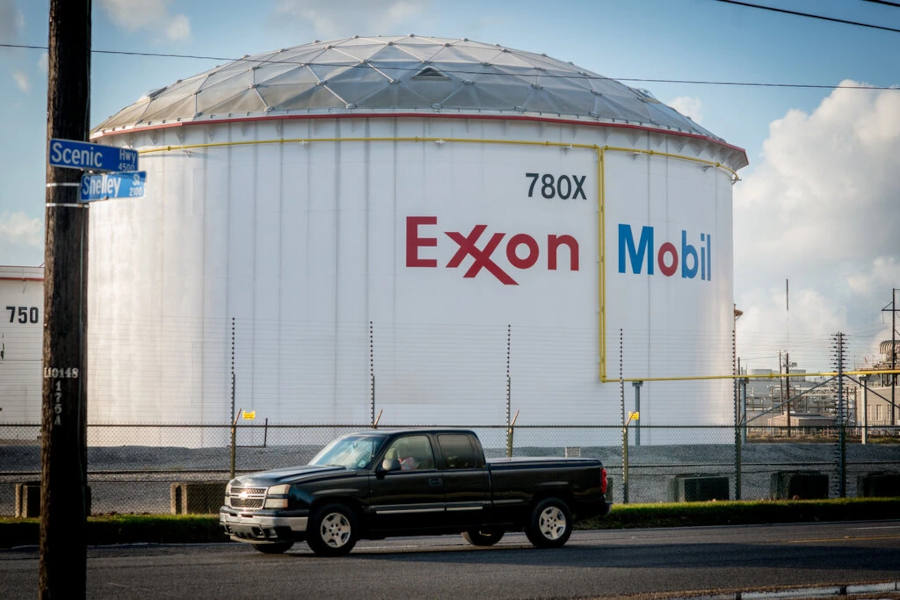 Exxon Mobil announced on Monday that it would significantly cut spending on exploration and production over the next four years and would write off up to $20 billion of investments in natural gas.
Exxon Mobil announced on Monday that it would significantly cut spending on exploration and production over the next four years and would write off up to $20 billion of investments in natural gas.
The company struggled to adapt as oil and gas prices tumbled this spring when the coronavirus pandemic took hold. While oil prices have recovered somewhat in recent months, they remain much lower than they were at the start of the year.
The company said it was removing gas projects from its plans in Appalachia, the Rocky Mountains, Oklahoma, Texas, Louisiana, Arkansas, Canada and Argentina.
______________________________________________
Exxon discloses full scope of fuel emissions for first time
- Update Jan 6,2021
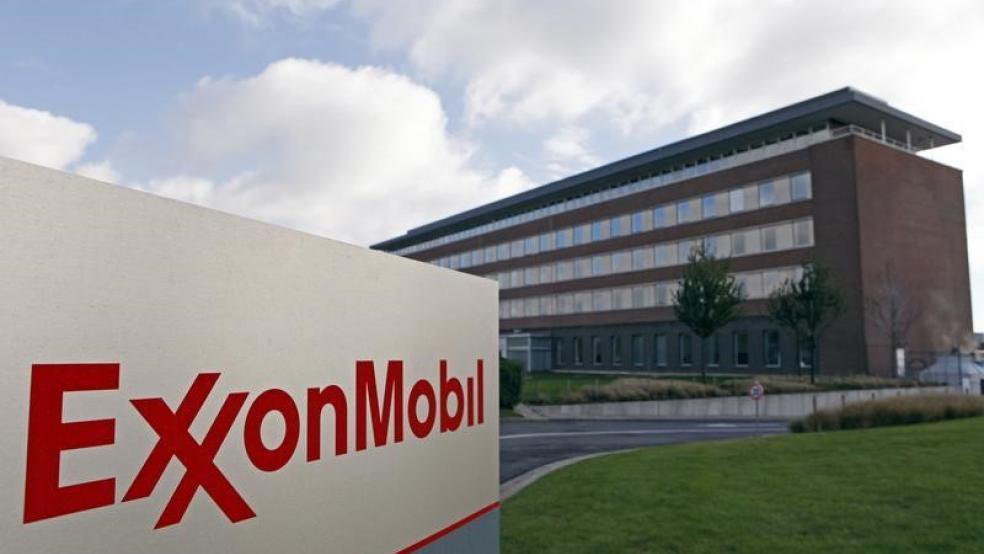 Exxon Mobil Corp. disclosed emissions data on customers’ use of its fuels and other products for the first time after coming under pressure from investors.
Exxon Mobil Corp. disclosed emissions data on customers’ use of its fuels and other products for the first time after coming under pressure from investors.
The oil giant’s so-called Scope 3 emissions from petroleum-product sales were equivalent to 730 million metric tons of carbon dioxide in 2019, according to the company’s Energy and Carbon Summary released Tuesday. That’s about the same as the entire country of Canada and is the highest of all major Western oil companies.
Most Western supermajors already publish the information and Exxon is doing so because “stakeholders have expressed growing interest” in it, the company said in the report. However, the data “do not provide meaningful insight into the company’s emission-reduction performance and could be misleading in some respects.”
Exxon Faces ‘Frustrated Investors’ After First-Ever Financial Loss
Update: February 3, 2021
 Colossal fossil ExxonMobil declared an annual financial loss yesterday for the first time ever, capping a year in which it had to borrow money and sell off assets to manage a US$15.2-billion payout to its shareholders.
Colossal fossil ExxonMobil declared an annual financial loss yesterday for the first time ever, capping a year in which it had to borrow money and sell off assets to manage a US$15.2-billion payout to its shareholders.
“Exxon now faces growing challenges from frustrated investors, who are pressuring the company to shake up its board and change its strategy, arguing that the company needs to shift its business model to thrive in a rapidly evolving energy market,” the Institute for Energy Economics and Financial Analysis reports. “[Tuesday’s] results could add to the urgency of their calls.”
Exxon cut its capital investment on exploration and development projects by about 29% last year, IEEFA says, but still spent $2.6 billion more on that activity than it could recover from operations. “While these results were disappointing to some, they were not actually outliers,” adds analyst Clark Williams-Derry. “ExxonMobil has paid more to shareholders than it generated in free cash flows for 12 of the last 15 years. And its free cash flows have generally trended downwards for more than a decade.” [Read more]
______________________________________________
Exxon casts out Canadian oilsands in massive reserves slump
Update February 20, 2021
Exxon Mobil Corp. erased almost every drop of oilsands crude from its books in a sweeping revision of worldwide reserves to depths never before seen in the company’s modern history.
Exxon counted the equivalent of 15.2 billion barrels of reserves as of Dec. 31, down from 22.44 billion a year earlier, according to a regulatory filing on Wednesday. The company’s reserves of the dense, heavy crude extracted from Western Canada’s sandy bogs dropped by 98 per cent.
In practical terms, the revision clipped Exxon’s future growth prospects until oil prices rise, costs slide or technological advances make it profitable to drill those fields. Exxon has enough reserves to sustain current production levels for 11 years, down from 15.5 years a year ago, based on Bloomberg calculations
______________________________________________
Fossil Decline Creates ‘Existential Business Risk’ for Exxon, Hedge Fund Analysts Warn
Update 04/28/2021
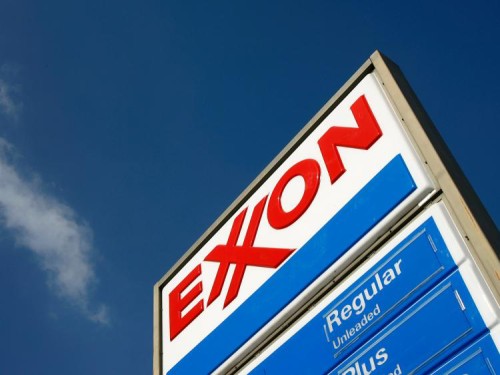 Colossal fossil ExxonMobil is up against “existential business risk” due to its “refusal to accept that fossil fuel demand may decline,” according to an investor presentation by San Francisco-based hedge fund Engine No. 1 that was first reported by the Financial Times.
Colossal fossil ExxonMobil is up against “existential business risk” due to its “refusal to accept that fossil fuel demand may decline,” according to an investor presentation by San Francisco-based hedge fund Engine No. 1 that was first reported by the Financial Times.
Though it already faces “value destruction”, the 80-page presentation said, Exxon is “pinning its future on fossil fuels as governments move to slash emissions” and “still has no credible plan to protect value in an energy transition,” Bloomberg Green reports, citing the Times story.
While the company “touts its efforts in areas like carbon capture and biofuels,” the Times said, citing the presentation, its activities so far have “delivered more advertising than results.” [Read more]
Quote from Steve on September 8, 2020, 2:13 pm
Petroliam Nasional Berhad (Petronas) is having decisive days lately. I don't think they're feeling like the won anything this time. They will change direction though — much better option than the alternative. They're going to cut global oil and gas production after posting a US$5.06-billion loss between April and June of this year.
They could see themselves in the winning team once again. A lot of smaller companies have gone belly up. They didn't have the resources or backing to switch gears.
Petronas is the world’s fourth-largest exporter of liquefied natural gas. They're partnered up with British Columbia’s massive LNG Canada megaproject. According to Reuters they will now seek to expand their renewable energy portfolio, and reassess its oil and gas positions, CEO Tengku Muhammad Taufik, who took over in July, told a news conference.
I wish them well. We're going to need well stocked energy companies as we transition towards a green recovery.
 Petroliam Nasional Berhad (Petronas) is having decisive days lately. I don't think they're feeling like the won anything this time. They will change direction though — much better option than the alternative. They're going to cut global oil and gas production after posting a US$5.06-billion loss between April and June of this year.
Petroliam Nasional Berhad (Petronas) is having decisive days lately. I don't think they're feeling like the won anything this time. They will change direction though — much better option than the alternative. They're going to cut global oil and gas production after posting a US$5.06-billion loss between April and June of this year.
They could see themselves in the winning team once again. A lot of smaller companies have gone belly up. They didn't have the resources or backing to switch gears.
Petronas is the world’s fourth-largest exporter of liquefied natural gas. They're partnered up with British Columbia’s massive LNG Canada megaproject. According to Reuters they will now seek to expand their renewable energy portfolio, and reassess its oil and gas positions, CEO Tengku Muhammad Taufik, who took over in July, told a news conference.
I wish them well. We're going to need well stocked energy companies as we transition towards a green recovery.
Quote from Steve on September 8, 2020, 3:35 pm
French colossal fossil Total is writing off 9.3 billion in stranded assets in Alberta and canceling its membership in the Canadian Producers Association Calgary-based tankers. They announced this in July.
It says it will take write-downs worth $ 7.3 billion because of its 24.6% stake in the Fort Hills oil sands mine operated by its partner Suncor Energy Inc. and its stake. 50% stake in the Surmont thermal oil sands project operated by its partner ConocoPhillips.
Total says it will also write off $ 2.0 billion on other oil sands assets, as well as $ 800 million on its liquefied natural gas assets in Australia.
This may slow the company down but it isn't stopping them. According to the Narwhal Total sealed the deal on a US$20 billion LNG project in Mozambique, Africa’s biggest project investment ever. They acquired a 26.5% stake in the project from Anadarko last year, hailed it as a “significant achievement”. “It demonstrates the confidence placed by the financial institutions in the long-term future of LNG in Mozambique.
Update Jan 18, 2021
French energy giant Total SE said it would pay $2.5 billion for a 20% stake in the world's largest solar developer, the latest move by an oil major to expand in renewable power.
Total said Monday the investment in Adani Green Energy Ltd. would help it meet its targets for generating more power from low-carbon sources amid a continuing global transition away from fossil fuels -- a shift some analysts say is being accelerated by the pandemic.
 French colossal fossil Total is writing off 9.3 billion in stranded assets in Alberta and canceling its membership in the Canadian Producers Association Calgary-based tankers. They announced this in July.
French colossal fossil Total is writing off 9.3 billion in stranded assets in Alberta and canceling its membership in the Canadian Producers Association Calgary-based tankers. They announced this in July.
It says it will take write-downs worth $ 7.3 billion because of its 24.6% stake in the Fort Hills oil sands mine operated by its partner Suncor Energy Inc. and its stake. 50% stake in the Surmont thermal oil sands project operated by its partner ConocoPhillips.
Total says it will also write off $ 2.0 billion on other oil sands assets, as well as $ 800 million on its liquefied natural gas assets in Australia.
This may slow the company down but it isn't stopping them. According to the Narwhal Total sealed the deal on a US$20 billion LNG project in Mozambique, Africa’s biggest project investment ever. They acquired a 26.5% stake in the project from Anadarko last year, hailed it as a “significant achievement”. “It demonstrates the confidence placed by the financial institutions in the long-term future of LNG in Mozambique.
Update Jan 18, 2021
French energy giant Total SE said it would pay $2.5 billion for a 20% stake in the world's largest solar developer, the latest move by an oil major to expand in renewable power.
Total said Monday the investment in Adani Green Energy Ltd. would help it meet its targets for generating more power from low-carbon sources amid a continuing global transition away from fossil fuels -- a shift some analysts say is being accelerated by the pandemic.
Quote from Steve on September 8, 2020, 7:04 pm
BP plc (formerly The British Petroleum Company plc and BP Amoco plc) is a British multinational oil and gas company headquartered in London, United Kingdom. It is one of the world's seven oil and gas "supermajors", whose performance in 2012, made it the world's sixth-largest oil and gas company, the sixth-largest energy company by market capitalization and the company with the world's 12th-largest revenue (turnover). It was announced last June that it has agreed to sell its global petrochemicals business to billionaire Jim Ratcliffe’s Ineos for $5 billion, pulling out of a sector widely seen as a key driver of oil demand growth in the coming decades.
Petrochemicals are forecast to be in high demand until 2050 according to the International Energy Agency (IEA). Still, it's selling assets worth $15 billion and cutting 10,000 jobs as a result of the oil price crash and pandemic. It plans to move toward renewable energy. They claim they will cut their emissions but I think that's to be expected. They plan to cur about 40 percent of their oil and gas production.
It's clear they don't want to be left behind. If the world is transitioning, they will too. Innovation, vision and investment may keep them afloat.
There Alternative Energy portfolio combines bp and Bunge's Brazilian bioenergy and sugarcane ethanol businesses. They also have solar projects and bio-isobutanol from corn. They want to become a renewable energy powerhouse by 2030. It's estimated to cost about $60 billion.
It seems we can't write this one off yet, but if they drop the oil & gas, maybe things will workout.
____________________________
Update Sept 10, 2020
OSLO (Reuters) - Norway’s Equinor (EQNR.OL) expects to book a profit of around $1 billion from its sale of a 50% stake in two U.S. offshore wind power developments to BP (BP.L), a company executive told Reuters on Thursday.
They seem to be very serious about transitioning to renewable energy.
 BP plc (formerly The British Petroleum Company plc and BP Amoco plc) is a British multinational oil and gas company headquartered in London, United Kingdom. It is one of the world's seven oil and gas "supermajors", whose performance in 2012, made it the world's sixth-largest oil and gas company, the sixth-largest energy company by market capitalization and the company with the world's 12th-largest revenue (turnover). It was announced last June that it has agreed to sell its global petrochemicals business to billionaire Jim Ratcliffe’s Ineos for $5 billion, pulling out of a sector widely seen as a key driver of oil demand growth in the coming decades.
BP plc (formerly The British Petroleum Company plc and BP Amoco plc) is a British multinational oil and gas company headquartered in London, United Kingdom. It is one of the world's seven oil and gas "supermajors", whose performance in 2012, made it the world's sixth-largest oil and gas company, the sixth-largest energy company by market capitalization and the company with the world's 12th-largest revenue (turnover). It was announced last June that it has agreed to sell its global petrochemicals business to billionaire Jim Ratcliffe’s Ineos for $5 billion, pulling out of a sector widely seen as a key driver of oil demand growth in the coming decades.
Petrochemicals are forecast to be in high demand until 2050 according to the International Energy Agency (IEA). Still, it's selling assets worth $15 billion and cutting 10,000 jobs as a result of the oil price crash and pandemic. It plans to move toward renewable energy. They claim they will cut their emissions but I think that's to be expected. They plan to cur about 40 percent of their oil and gas production.
It's clear they don't want to be left behind. If the world is transitioning, they will too. Innovation, vision and investment may keep them afloat.
There Alternative Energy portfolio combines bp and Bunge's Brazilian bioenergy and sugarcane ethanol businesses. They also have solar projects and bio-isobutanol from corn. They want to become a renewable energy powerhouse by 2030. It's estimated to cost about $60 billion.
It seems we can't write this one off yet, but if they drop the oil & gas, maybe things will workout.
____________________________
Update Sept 10, 2020
OSLO (Reuters) - Norway’s Equinor (EQNR.OL) expects to book a profit of around $1 billion from its sale of a 50% stake in two U.S. offshore wind power developments to BP (BP.L), a company executive told Reuters on Thursday.
They seem to be very serious about transitioning to renewable energy.
Quote from Steve on September 8, 2020, 10:55 pmHe Has Oil Running Scared
Premier Jason Kenney like to blame the down-turn in oil on the pandemic. After-all, he was elected on a promise of jobs, pipelines and a better economy. It can't be blamed on the pandemic. May 03, 2019 there was close to 31 companies close to going insolvent. Dec. 29, 2019 Mr. Kenney claimed he was looking forward to the new year. He promised more jobs and more pipelines. But it didn't happen. Then early on towards the Spring, we were hit with the coronavirus and an oil price war between Russia and Saudi Arabia. Perhaps this was a godsend to Kenney. At least he had something to blame his incompetence on other than Trudeau. That tirade was getting old.
There has been a stampede in Alberta. No, not cow — oil companies getting out while they still can. All of them weren't so lucky though. Some didn't have the money or resources. They died right where they lived. Here's a look at some of the smaller companies that have gone under.
- Raptor Rig Ltd
- Clearbeach Resources
- Cabot Energy Inc.
- Cequence Energy Ltd. (TSX:CQE)
- Bow River Energy Ltd.
- Q’Max Solutions Inc.
- Delphi Energy (TSX:DEE)
- Direct Oil & Gas Inc.
- Strategic Oil & Gas (TSX-V: SOG)
- Traverse Energy (TSX-V: TVL)
- Accel Canada
- Eagle Energy (TSX-V: EGL)
- Wolf Coulee Resources
- Kitnuma Petroleum and Kitnuma Projects
- Houston Oil & Gas
- ACCEL Energy
- Bellatrix Exploration (TSX: BXE)
- Bearstone Environmental Solutions
- Ajax Petroleum
- Petrocapita Oil and Gas
- Trident Exploration
- Patriot Equipment
- Strategic Oil & Gas (TSX-V: SOG)
- Dundee Energy Ltd. Dundee Energy Ltd.
- Elcano Group
- Horseshoe Bay Resources
- R.I.I. North America
- Diagonal Oil & Gas
- Delfan Energy Resources
- The OpsMobil Group
- Mustang Well Services
- Clayton Construction
- Global Flow
- Requisite Energy Services
- Sequoia Resources Corporation
- Storm Rentals
- Sequoia Resources Corporation
The UCP government has opportunities to work towards a green recovery and provide jobs and money for the municipalities. Yes he heard "hydrogen" being whispered. He's going to do it! Yes, he's going to use it to power the oil sands, so he can pump more oil. According to a news article, “Alberta will announce, no later than October, a strategy to develop “blue hydrogen” as a cleaner alternative to using natural gas to extract crude at steam-driven oil sands sites, Associate Minister of Natural Gas Dale Nally told Reuters in an interview.
He Has Oil Running Scared
 Premier Jason Kenney like to blame the down-turn in oil on the pandemic. After-all, he was elected on a promise of jobs, pipelines and a better economy. It can't be blamed on the pandemic. May 03, 2019 there was close to 31 companies close to going insolvent. Dec. 29, 2019 Mr. Kenney claimed he was looking forward to the new year. He promised more jobs and more pipelines. But it didn't happen. Then early on towards the Spring, we were hit with the coronavirus and an oil price war between Russia and Saudi Arabia. Perhaps this was a godsend to Kenney. At least he had something to blame his incompetence on other than Trudeau. That tirade was getting old.
Premier Jason Kenney like to blame the down-turn in oil on the pandemic. After-all, he was elected on a promise of jobs, pipelines and a better economy. It can't be blamed on the pandemic. May 03, 2019 there was close to 31 companies close to going insolvent. Dec. 29, 2019 Mr. Kenney claimed he was looking forward to the new year. He promised more jobs and more pipelines. But it didn't happen. Then early on towards the Spring, we were hit with the coronavirus and an oil price war between Russia and Saudi Arabia. Perhaps this was a godsend to Kenney. At least he had something to blame his incompetence on other than Trudeau. That tirade was getting old.
There has been a stampede in Alberta. No, not cow — oil companies getting out while they still can. All of them weren't so lucky though. Some didn't have the money or resources. They died right where they lived. Here's a look at some of the smaller companies that have gone under.
- Raptor Rig Ltd
- Clearbeach Resources
- Cabot Energy Inc.
- Cequence Energy Ltd. (TSX:CQE)
- Bow River Energy Ltd.
- Q’Max Solutions Inc.
- Delphi Energy (TSX:DEE)
- Direct Oil & Gas Inc.
- Strategic Oil & Gas (TSX-V: SOG)
- Traverse Energy (TSX-V: TVL)
- Accel Canada
- Eagle Energy (TSX-V: EGL)
- Wolf Coulee Resources
- Kitnuma Petroleum and Kitnuma Projects
- Houston Oil & Gas
- ACCEL Energy
- Bellatrix Exploration (TSX: BXE)
- Bearstone Environmental Solutions
- Ajax Petroleum
- Petrocapita Oil and Gas
- Trident Exploration
- Patriot Equipment
- Strategic Oil & Gas (TSX-V: SOG)
- Dundee Energy Ltd. Dundee Energy Ltd.
- Elcano Group
- Horseshoe Bay Resources
- R.I.I. North America
- Diagonal Oil & Gas
- Delfan Energy Resources
- The OpsMobil Group
- Mustang Well Services
- Clayton Construction
- Global Flow
- Requisite Energy Services
- Sequoia Resources Corporation
- Storm Rentals
- Sequoia Resources Corporation
The UCP government has opportunities to work towards a green recovery and provide jobs and money for the municipalities. Yes he heard "hydrogen" being whispered. He's going to do it! Yes, he's going to use it to power the oil sands, so he can pump more oil. According to a news article, “Alberta will announce, no later than October, a strategy to develop “blue hydrogen” as a cleaner alternative to using natural gas to extract crude at steam-driven oil sands sites, Associate Minister of Natural Gas Dale Nally told Reuters in an interview.
Quote from Steve on September 9, 2020, 10:42 am
Husky Energy seems to be having their fair share of problems. They received some free giveaway money to oil companies. Yes, it was part of Jason Kenney's 4.7 billion lottery. If you had an oil or gas company, you were automatically awarded a prize worth millions of dollars. Then they fired people and moved out of the country. They still suck in Canada as Newfoundland and Labrador are finding out.
Husky will review the White Rose extension project, which was suspended in March due to the COVID-19 pandemic. The decision throws a major project in the province's offshore industry into limbo, as it involves thousands of construction, production and supply jobs, as well as billions of dollars in revenue for the provincial government.
Any bets on what happens next?
Update 10/25/20
Cenovus Energy Inc. has agreed to buy rival Husky Energy Inc. in an all-stock deal valued at $3.8 billion as weak oil prices and a collapse in demand driven by the pandemic force the industry to consolidate.
The merged Cenovus Energy Inc. will remain headquartered in Alberta. The deal would combine the companies into a new integrated oil and gas business with increased and more stable cash flows, the statement said.
Cenovus's deal for Husky is valued at $23.6 billion, including debt, the companies said in a joint statement. [Read more]
Alberta Fossil Cenovus Declares $100-Million Loss on Keystone XL Cancellation
Update: February 10, 2021
The cancellation of the Keystone XL oil export pipeline has resulted in a second tar sands/oil sands company posting a multi-million-dollar impairment charge in its fourth quarter earnings report.
Calgary-based Cenovus Energy Inc. on Tuesday reported a net loss of C$153 million for the three months ended December 31—including a non-cash hit of $100 million related to U.S. President Joe Biden’s decision to cancel the pipeline’s permit the day he took office last month, The Canadian Press reports.
“Due to the revoked presidential permit and suspension of the project, we accrued a $100-million expense in the fourth quarter related to those development costs,” Curren added. “We expect this charge to cover the full amount of potential costs associated with the agreements and it’s considered a one-time expense.”
The Cenovus report, covering the quarter just before it completed its takeover of rival Husky Energy Inc. in an all-stock deal that closed January 4, largely met analyst expectations, but its shares fell by as much as 47¢ or 5.7%, to $7.74, in trading on the Toronto Stock Exchange. [Read more]
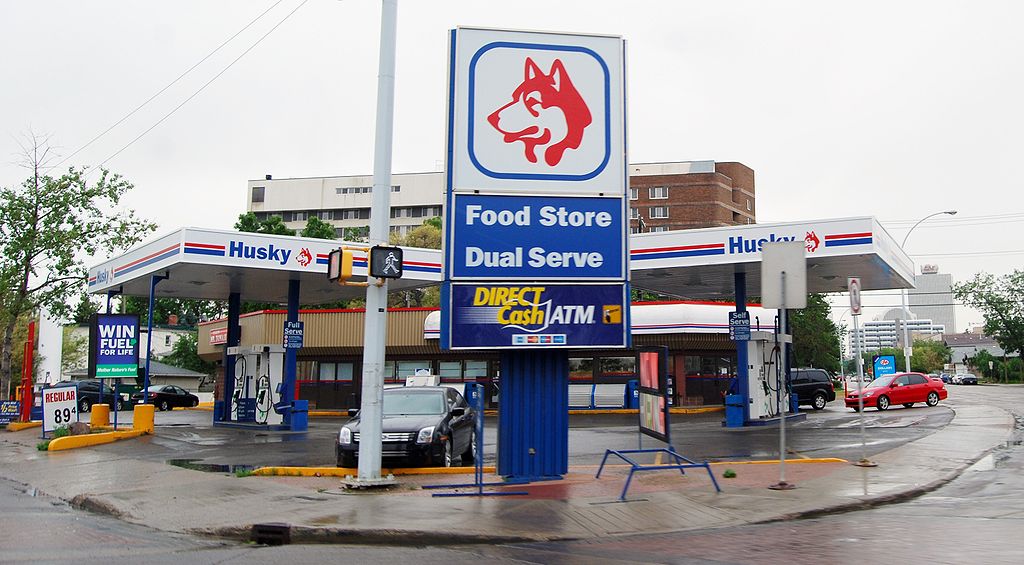 Husky Energy seems to be having their fair share of problems. They received some free giveaway money to oil companies. Yes, it was part of Jason Kenney's 4.7 billion lottery. If you had an oil or gas company, you were automatically awarded a prize worth millions of dollars. Then they fired people and moved out of the country. They still suck in Canada as Newfoundland and Labrador are finding out.
Husky Energy seems to be having their fair share of problems. They received some free giveaway money to oil companies. Yes, it was part of Jason Kenney's 4.7 billion lottery. If you had an oil or gas company, you were automatically awarded a prize worth millions of dollars. Then they fired people and moved out of the country. They still suck in Canada as Newfoundland and Labrador are finding out.
Husky will review the White Rose extension project, which was suspended in March due to the COVID-19 pandemic. The decision throws a major project in the province's offshore industry into limbo, as it involves thousands of construction, production and supply jobs, as well as billions of dollars in revenue for the provincial government.
Any bets on what happens next?
Update 10/25/20
Cenovus Energy Inc. has agreed to buy rival Husky Energy Inc. in an all-stock deal valued at $3.8 billion as weak oil prices and a collapse in demand driven by the pandemic force the industry to consolidate.
The merged Cenovus Energy Inc. will remain headquartered in Alberta. The deal would combine the companies into a new integrated oil and gas business with increased and more stable cash flows, the statement said.
Cenovus's deal for Husky is valued at $23.6 billion, including debt, the companies said in a joint statement. [Read more]
Alberta Fossil Cenovus Declares $100-Million Loss on Keystone XL Cancellation
Update: February 10, 2021
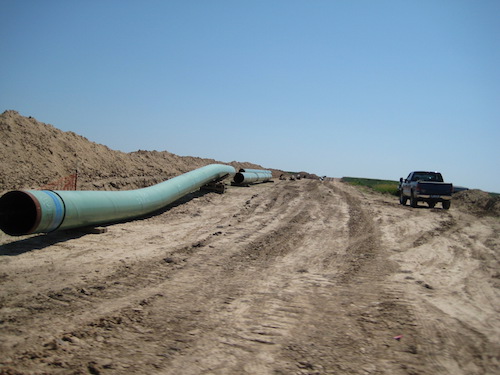 The cancellation of the Keystone XL oil export pipeline has resulted in a second tar sands/oil sands company posting a multi-million-dollar impairment charge in its fourth quarter earnings report.
The cancellation of the Keystone XL oil export pipeline has resulted in a second tar sands/oil sands company posting a multi-million-dollar impairment charge in its fourth quarter earnings report.
Calgary-based Cenovus Energy Inc. on Tuesday reported a net loss of C$153 million for the three months ended December 31—including a non-cash hit of $100 million related to U.S. President Joe Biden’s decision to cancel the pipeline’s permit the day he took office last month, The Canadian Press reports.
“Due to the revoked presidential permit and suspension of the project, we accrued a $100-million expense in the fourth quarter related to those development costs,” Curren added. “We expect this charge to cover the full amount of potential costs associated with the agreements and it’s considered a one-time expense.”
The Cenovus report, covering the quarter just before it completed its takeover of rival Husky Energy Inc. in an all-stock deal that closed January 4, largely met analyst expectations, but its shares fell by as much as 47¢ or 5.7%, to $7.74, in trading on the Toronto Stock Exchange. [Read more]
Quote from Steve on September 11, 2020, 11:03 amFossils Keep Paying Shareholders Despite Epic Financial Losses, Declining Business Prospects
“Overall, the five global oil and gas supermajors posted disappointing results after the worldwide coronavirus crisis crimped energy demand and sent prices plummeting,” IEEFA writes, with ExxonMobil standing out as a particularly poor performer.
But the quarterly crash appears not to have deterred the companies from protecting the dividends that keep investors onside. “The five supermajors—ExxonMobil, Royal Dutch Shell (Shell), BP, Chevron, and Total—collectively paid US$16.9 billion more to shareholders than they generated from their core business operations, plugging the gap with borrowing and asset sales,” IEEFA concludes.
“The red ink flowed even as the five companies slashed capital expenditures from $21.6 billion in the second quarter of 2019 to $15.4 billion last quarter, a 29% decrease,” IEEFA writes. “More alarmingly, four of the five companies kept shareholder dividends steady despite their disappointing performance. To help plug their cash deficits, the five companies borrowed heavily, increasing their cumulative debt to $290 billion, a $50 billion increase over the previous quarter.” [ more ]
Fossils Keep Paying Shareholders Despite Epic Financial Losses, Declining Business Prospects
 “Overall, the five global oil and gas supermajors posted disappointing results after the worldwide coronavirus crisis crimped energy demand and sent prices plummeting,” IEEFA writes, with ExxonMobil standing out as a particularly poor performer.
“Overall, the five global oil and gas supermajors posted disappointing results after the worldwide coronavirus crisis crimped energy demand and sent prices plummeting,” IEEFA writes, with ExxonMobil standing out as a particularly poor performer.
But the quarterly crash appears not to have deterred the companies from protecting the dividends that keep investors onside. “The five supermajors—ExxonMobil, Royal Dutch Shell (Shell), BP, Chevron, and Total—collectively paid US$16.9 billion more to shareholders than they generated from their core business operations, plugging the gap with borrowing and asset sales,” IEEFA concludes.
“The red ink flowed even as the five companies slashed capital expenditures from $21.6 billion in the second quarter of 2019 to $15.4 billion last quarter, a 29% decrease,” IEEFA writes. “More alarmingly, four of the five companies kept shareholder dividends steady despite their disappointing performance. To help plug their cash deficits, the five companies borrowed heavily, increasing their cumulative debt to $290 billion, a $50 billion increase over the previous quarter.” [ more ]
Quote from Steve on September 23, 2020, 9:44 am
Shell to Cut Oil and Gas Production Investment 30-40%, Fight Other Fossils for Renewables Market Share
Colossal fossil Royal Dutch Shell is planning to cut its oil and gas production costs 30 to 40% and focus more of its efforts on renewable energy, Reuters reports, hoping to fight competitors like BP and Total for market share “as economies around the world go green”.
Colossal fossil Royal Dutch Shell is planning to cut its oil and gas production costs 30 to 40% and focus more of its efforts on renewable energy, Reuters reports, hoping to fight competitors like BP and Total for market share “as economies around the world go green”.
Update Sept 30, 2020
Energy producer Royal Dutch Shell plc said Wednesday it’s planning to cut between 7,000 and 9,000 jobs worldwide by the end of 2022 following a collapse in demand for oil and a subsequent slide in prices during the coronavirus pandemic.
The company said around 1,500 employees have already agreed to take voluntary redundancy this year and that it's looking at a raft of other areas where it can cut costs, such as travel, its use of contractors and virtual working. Overall, it said it expects the cost-cutting measures to secure annual cost savings of between $2 billion and $2.5 billion by 2022. [Read more]
Shell to close Louisiana oil refinery that employs hundreds
Update: Nov 6, 2020
Shell announced Thursday that it is closing one of its refineries between Baton Rouge and New Orleans, after failed attempts to sell the facility.
The refinery in Convent can process 240,000 barrels of crude oil per er day. It employs nearly 700 workers and 400 contract workers, who will be affected by the closure expected to begin in mid-November.
“Despite efforts to sell the asset, a viable buyer was never identified,'' Shell spokesman Curtis Smith told The Advocate. “After looking at all aspects of our business, including financial performance, we made the difficult decision to shut down the site.'' [Read more]
_________________________________________________
Shell Faces Wave of Resignations as Execs Question Commitment to Carbon Reduction Plan
Dec. 11, 2020
Royal Dutch Shell is facing a wave of resignations among clean energy executives who’ve become disillusioned with the colossal fossil’s highly-touted carbon reduction plan, just weeks before a major strategy review due to be released in February.
“Some executives have pushed for a more aggressive shift from oil, but top management is more inclined to stick closer to the company’s current path,” the Financial Times reports, citing four sources familiar with the story. Another source predicted further departures.
Last year, a defiant van Beurden claimed the company had “no choice” but to keep investing in long-running fossil projects. “Despite what a lot of activists say, it is entirely legitimate to invest in oil and gas because the world demands it,” he told Reuters. “We can sustain an upstream (oil and gas) portfolio all the way into the 2030s if there is an economic rationale for doing that and a societal rationale for doing that,” he added. And “fortunately enough, we have more of those than we have money to spend on them.” [Read more]
 Shell to Cut Oil and Gas Production Investment 30-40%, Fight Other Fossils for Renewables Market Share
Shell to Cut Oil and Gas Production Investment 30-40%, Fight Other Fossils for Renewables Market Share
Colossal fossil Royal Dutch Shell is planning to cut its oil and gas production costs 30 to 40% and focus more of its efforts on renewable energy, Reuters reports, hoping to fight competitors like BP and Total for market share “as economies around the world go green”.
Colossal fossil Royal Dutch Shell is planning to cut its oil and gas production costs 30 to 40% and focus more of its efforts on renewable energy, Reuters reports, hoping to fight competitors like BP and Total for market share “as economies around the world go green”.
Update Sept 30, 2020
Energy producer Royal Dutch Shell plc said Wednesday it’s planning to cut between 7,000 and 9,000 jobs worldwide by the end of 2022 following a collapse in demand for oil and a subsequent slide in prices during the coronavirus pandemic.
The company said around 1,500 employees have already agreed to take voluntary redundancy this year and that it's looking at a raft of other areas where it can cut costs, such as travel, its use of contractors and virtual working. Overall, it said it expects the cost-cutting measures to secure annual cost savings of between $2 billion and $2.5 billion by 2022. [Read more]
Shell to close Louisiana oil refinery that employs hundreds
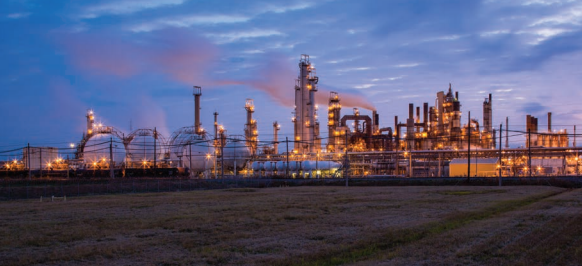 Update: Nov 6, 2020
Update: Nov 6, 2020
Shell announced Thursday that it is closing one of its refineries between Baton Rouge and New Orleans, after failed attempts to sell the facility.
The refinery in Convent can process 240,000 barrels of crude oil per er day. It employs nearly 700 workers and 400 contract workers, who will be affected by the closure expected to begin in mid-November.
“Despite efforts to sell the asset, a viable buyer was never identified,'' Shell spokesman Curtis Smith told The Advocate. “After looking at all aspects of our business, including financial performance, we made the difficult decision to shut down the site.'' [Read more]
_________________________________________________
Shell Faces Wave of Resignations as Execs Question Commitment to Carbon Reduction Plan
Dec. 11, 2020
Royal Dutch Shell is facing a wave of resignations among clean energy executives who’ve become disillusioned with the colossal fossil’s highly-touted carbon reduction plan, just weeks before a major strategy review due to be released in February.
“Some executives have pushed for a more aggressive shift from oil, but top management is more inclined to stick closer to the company’s current path,” the Financial Times reports, citing four sources familiar with the story. Another source predicted further departures.
Last year, a defiant van Beurden claimed the company had “no choice” but to keep investing in long-running fossil projects. “Despite what a lot of activists say, it is entirely legitimate to invest in oil and gas because the world demands it,” he told Reuters. “We can sustain an upstream (oil and gas) portfolio all the way into the 2030s if there is an economic rationale for doing that and a societal rationale for doing that,” he added. And “fortunately enough, we have more of those than we have money to spend on them.” [Read more]
Quote from Steve on October 2, 2020, 2:04 pmSuncor’s layoff could affect 2,000 Albertans
Suncor Energy announced Friday it will be cutting staff by as much as 15 per cent over the next year and a half as the company deals with the impact of a slumping economy brought on by the global pandemic.
Spokesperson Sneh Seetal said staff were informed by the company's CEO, Mark Little, via an internal webcast on Friday morning. The first tranche of job cuts, about five per cent of the workforce, will come in the next six months, she said.
According to an article in the Calgary Herald, Premier Jason Kenney was crying the blues.
“The government of Canada would be moving heaven and earth if we saw layoffs of this scale in the central Canadian manufacturing industry,” Kenney told reporters on Friday. “This truly is a jobs crisis and an economic emergency and it deserves to be responded to here in Alberta the same way it would be in Ontario or Quebec.”
Kenney said he is once again calling on the federal government to “do no more harm” to Alberta’s oil and gas sector, adding Ottawa should press the pause button on its proposed Clean Fuel Standard, which Kenney said will make Alberta energy companies uncompetitive on the global market. He also once again slammed changes to the environmental review process put in place by Bill C-69, saying the result has been investor uncertainty at the worst possible time.
The federal Liberals are not responsible for the oil price war between the Russia and Saudi Arabia. Nor are they responsible for the pandemic.
The investor uncertainly has nothing to do with the federal government either. Several investors have been pulling out of Alberta because the provincial government is against diversifying from anything other than oil & gas. That means less sustainability and more risk for those wishing to invest. Premier Jason Kenney refused to listen. Besides several investors withdrawing form Alberta, Moody's has lowered the provincial credit rating.
If anything, Jason Kenney is the real reason why the Alberta economy has been tanking since they won the election over the NDP.
Shell to write down assets again, taking cuts to more than $22 billion
Dec. 21, 2020
LONDON (Reuters) - Royal Dutch Shell on Monday said it will write down the value of oil and gas assets by $3.5 billion to $4.5 billion following a string of impairments this year as it adjusts to a weaker outlook.
Shell shares were down by around 4% in early trading in London.
In October, Shell, the world’s biggest LNG trader, wrote down the value of its LNG portfolio by just under $1 billion, focusing on its flagship Prelude project in Australia.
Suncor’s layoff could affect 2,000 Albertans
 Suncor Energy announced Friday it will be cutting staff by as much as 15 per cent over the next year and a half as the company deals with the impact of a slumping economy brought on by the global pandemic.
Suncor Energy announced Friday it will be cutting staff by as much as 15 per cent over the next year and a half as the company deals with the impact of a slumping economy brought on by the global pandemic.
Spokesperson Sneh Seetal said staff were informed by the company's CEO, Mark Little, via an internal webcast on Friday morning. The first tranche of job cuts, about five per cent of the workforce, will come in the next six months, she said.
According to an article in the Calgary Herald, Premier Jason Kenney was crying the blues.
“The government of Canada would be moving heaven and earth if we saw layoffs of this scale in the central Canadian manufacturing industry,” Kenney told reporters on Friday. “This truly is a jobs crisis and an economic emergency and it deserves to be responded to here in Alberta the same way it would be in Ontario or Quebec.”
Kenney said he is once again calling on the federal government to “do no more harm” to Alberta’s oil and gas sector, adding Ottawa should press the pause button on its proposed Clean Fuel Standard, which Kenney said will make Alberta energy companies uncompetitive on the global market. He also once again slammed changes to the environmental review process put in place by Bill C-69, saying the result has been investor uncertainty at the worst possible time.
The federal Liberals are not responsible for the oil price war between the Russia and Saudi Arabia. Nor are they responsible for the pandemic.
The investor uncertainly has nothing to do with the federal government either. Several investors have been pulling out of Alberta because the provincial government is against diversifying from anything other than oil & gas. That means less sustainability and more risk for those wishing to invest. Premier Jason Kenney refused to listen. Besides several investors withdrawing form Alberta, Moody's has lowered the provincial credit rating.
If anything, Jason Kenney is the real reason why the Alberta economy has been tanking since they won the election over the NDP.
Shell to write down assets again, taking cuts to more than $22 billion
Dec. 21, 2020
LONDON (Reuters) - Royal Dutch Shell on Monday said it will write down the value of oil and gas assets by $3.5 billion to $4.5 billion following a string of impairments this year as it adjusts to a weaker outlook.
Shell shares were down by around 4% in early trading in London.
In October, Shell, the world’s biggest LNG trader, wrote down the value of its LNG portfolio by just under $1 billion, focusing on its flagship Prelude project in Australia.
Quote from Steve on October 31, 2020, 7:58 amChevron, Exxon shrink spending as coronavirus cuts demand
Exxon posted its third straight quarter of losses on Friday and reduced spending plans for the coming year.
In common with others in the sector, the two are laying off a substantial portion of their workforce and expect to cut costs further as they try to reverse years of weak stock performance, worsened by the impact of movement restrictions.
U.S. oil prices have dropped 41% this year as the coronavirus forced billions of people into lockdowns. Demand recovered in the late northern hemisphere summer, but nations including Germany, India and the United States are again tackling a surge in infections, dampening demand for gasoline, diesel and jet fuel.
The outlook for energy consumption “depends on when the world - this country and other countries - get control of the pandemic and those activities resume. We don’t know when that’s going to be,” said Chevron Chief Financial Officer Pierre Breber. [Read more]
Chevron, Exxon shrink spending as coronavirus cuts demand
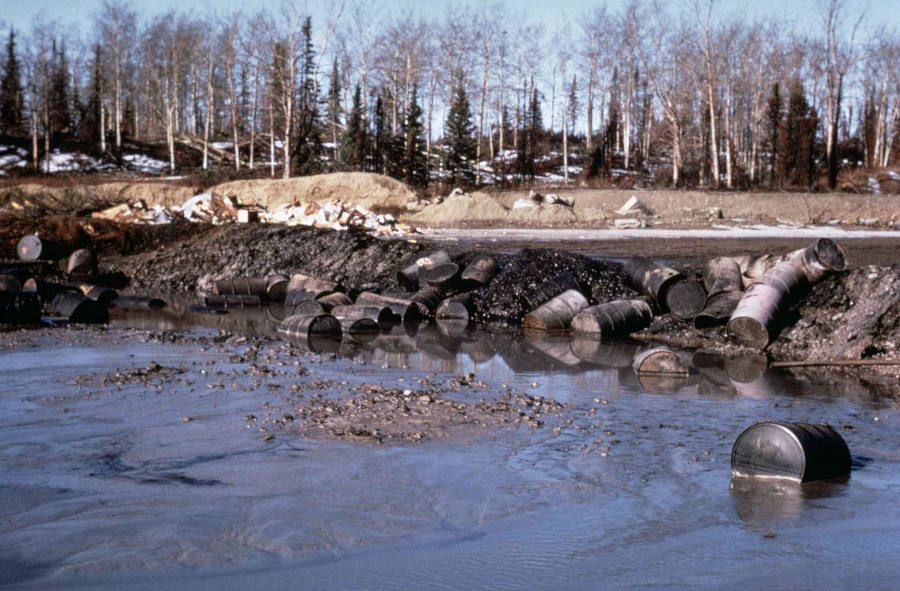 Exxon posted its third straight quarter of losses on Friday and reduced spending plans for the coming year.
Exxon posted its third straight quarter of losses on Friday and reduced spending plans for the coming year.
In common with others in the sector, the two are laying off a substantial portion of their workforce and expect to cut costs further as they try to reverse years of weak stock performance, worsened by the impact of movement restrictions.
U.S. oil prices have dropped 41% this year as the coronavirus forced billions of people into lockdowns. Demand recovered in the late northern hemisphere summer, but nations including Germany, India and the United States are again tackling a surge in infections, dampening demand for gasoline, diesel and jet fuel.
The outlook for energy consumption “depends on when the world - this country and other countries - get control of the pandemic and those activities resume. We don’t know when that’s going to be,” said Chevron Chief Financial Officer Pierre Breber. [Read more]
